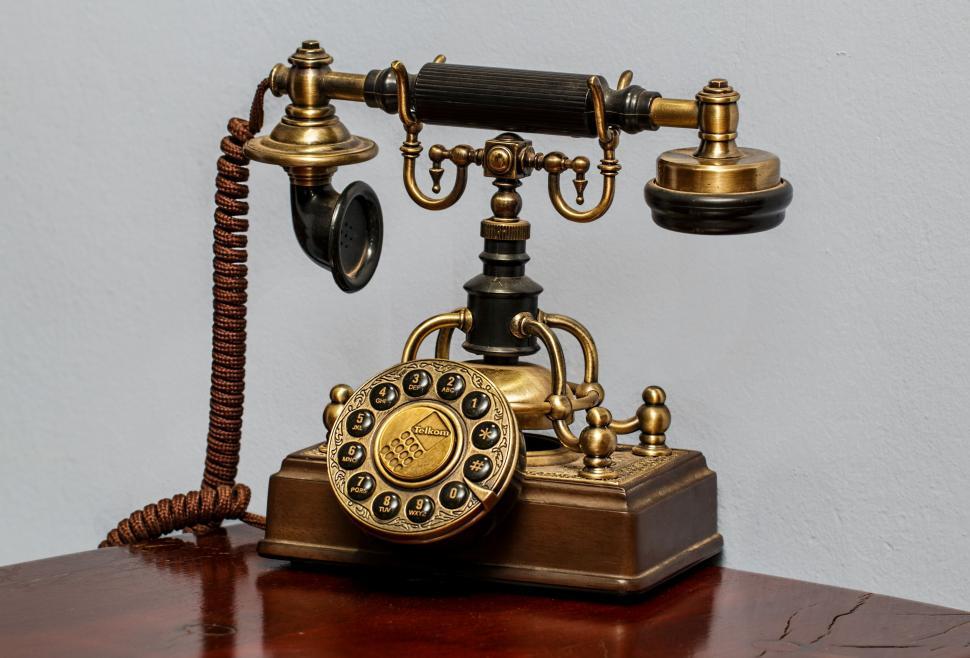The invention of the phone is often considered one of the most important technological progress in human history. Before, the phone operated businesses in ways that were slow and limited, often dependent on face-to-face meetings or written correspondence. However, with the invention of the phone, companies made a big change. But How Did The Invention Of The Telephone Most Impact Businesses? This revolutionized communication and decision-making, improved customer service, and helped companies grow in an unthinkable way in advance.
In this article, we will find out how the phone changed the business landscape and what benefits it brought. We will look at its impact on everyday business operations, how it helps companies to expand, and how the world we live in today is shaped.
The Birth of the Telephone
It is important to understand how it came before we dive into businesses under the influence of telephone. Alexander Graham Bell is credited with the invention of the phone in 1876. The first idea was to find a way to send vocal signals through electrical wires so that people can communicate at long distances. Bell’s invention was the beginning of a communication revolution that would not only change personal matters but also the business world.
How the Telephone Changed Business Operations?
The invention of the phone had a major impact on the businesses, and there are some ways that made a difference:
1. Fast communication
Before, the phone had to rely on written messages (such as letters) or messengers to communicate. This process was slow, especially when treating people in different places. The phone allowed companies to communicate immediately regardless of distance. This immediate communication increased daily operations and increased efficiency.
| Before Telephone | After Telephone |
|---|
| Slow communication (letters, face-to-face) | Instant communication (calls) |
| Limited reach (local or in-person) | Global communication (worldwide) |
| Increased risk of miscommunication | Clearer communication through voice |
2. Extension of businesses
Telephone opened doors for new business opportunities. Companies can now expand beyond local markets, as they can communicate with suppliers, customers, and partners across the country or internationally. This expansion was important for the development of industries such as retail, production, and finance. Companies were no longer limited to the geographical area they could reach the post or meetings.

3. Better customer service
Before the phone, customers could only interact with companies through face-to-face meetings or written correspondence, which can also take days or weeks. The phone enabled companies to provide quick reactions to customer surveys and solve on-site problems. This change improved customer satisfaction dramatically and helped to have a permanent relationship.
4. Increase productivity
By letting employees communicate quickly and directly with each other, the phone made the collaboration in businesses easy. Instead of waiting for letters to arrive or planning the meeting in Trodd, workers can coordinate efforts more efficiently, causing a more productive work environment. Employees can discuss problems, share updates, and make decisions without unnecessary delays.
5. Better marketing and sales
With telephones, companies can directly contact potential customers and customers. This led to the development of telemarketing and cold calls, which became a popular way of reaching customers and offering products or services. Companies can follow leads, answer questions, and close agreements faster than before. It also allowed companies to maintain close contact with their customers, which led to several individual services.
How the Telephone Impacted Specific Industries ?
Many industries have such big changes for telephone inventions:
1. Retail
Retail companies can now take orders on the phone, manage inventory more efficiently, and communicate directly with suppliers. This improved general customer experience and well-organized operation. Customers can order or ask about products without the need to go to the store in person, which increased sales and convenience.
2. Bank and finance
The banking sector was another area that was greatly served with the phone. Bank representatives can communicate more efficiently with customers and provide the opportunity for rapid processing of requests and financial transactions. The phone also made it easy for banks to communicate with each other, which improved interbank transactions.
3. Production
The manufacturers also saw benefits from the phone. They can order with suppliers, communicate with distribution centers, and update customers about the position of their orders via telephone calls. This reduced the delay and improved the overall supply chain, which helped companies grow and distribute products more efficiently.
The Long-Term Impact Invention Of The Telephone Most Impact Businesses
While the invention of the phone was originally seen as news, its long-term impact on business operations was undisputed. Over time, companies began to rely on the telephone as an important tool in their communication systems. The development of telephone networks also continued innovations such as conference calls, voicemail, and commercial lines, which promoted trade.
Today, while technology has moved beyond the original phone, the basic effect of the phone is felt on commercial communication. Modern businesses now use e-mail, video calls, and message apps, but all these communication methods have roots in the original invention of the phone.
Conclusion
Telephone inventory had a major impact on businesses, changed communication, operated more efficiently, expanded access, and improved customer service. By accelerating communication, growing businesses, and increasing productivity, the phone laid the foundation for the modern commercial world. Although technology has evolved over time, the role of the phone in the design of the way of running businesses is important. It is easy to see why phones are often considered one of the most influential inventions in history.

Read Also: Why Tech Workers Are Ditching Big Cities?
FAQ: How Did The Invention Of The Telephone Most Impact Businesses?
The phone allowed companies to communicate immediately, which improved the speed and efficiency of operations. Employees can reduce the delay caused by written communication and talk directly with each other, customers, and suppliers.
Yes, the telephone allowed businesses to expand beyond local markets, reaching customers and suppliers globally. This helped industries grow and compete on a larger scale.
The telephone enabled businesses to address customer inquiries and resolve issues quickly, improving customer satisfaction and fostering long-term relationships.
Industries such as retail, banking, production, and finance experienced all-important benefits. These industries used telephones to improve communication, streamline operations, and increase customer service.
Yes, the phone allowed companies to connect directly with customers, which led to the increase in telemarketing and sales calls. This helped companies to have strong relationships with their customers.





